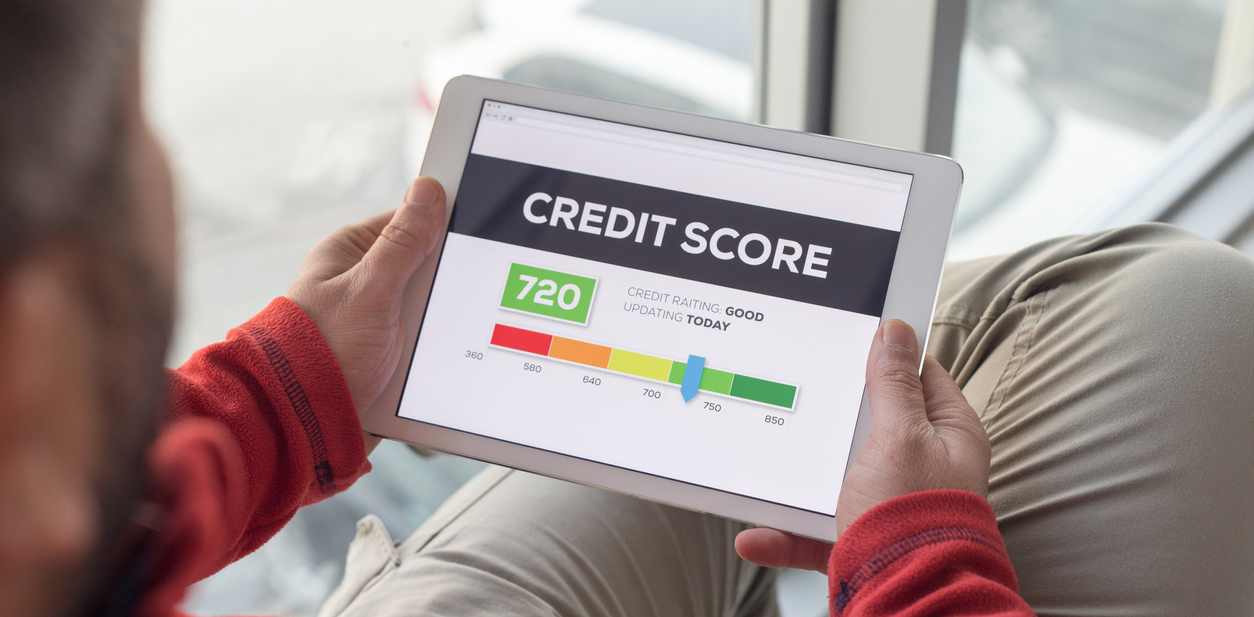Predatory Car Loans: How to Avoid Them and How to Get Out of One
;)

Don’t fall victim to the predatory tactics of shady lenders who offer high-interest loans with brutal fees.
Predators, like sharks, lions, and the alien from the franchise of the same name, prey on the weak and unsuspecting. They’re of a single mindset and pounce upon their quarry to fill their bellies.
Though the world of auto loans is distinct from the wilds of the jungle, certain lenders take on the predator mantle. Where predatory animals take advantage of their prey’s weaknesses, predatory lenders rely upon your inexperience, lack of knowledge, or poor financial situation to line their pockets with more of your cash than they’re rightfully entitled to.
In turn, you become responsible for paying off a bad car loan — one with high interest rates and unfavorable loan terms. Fortunately, there are methods of avoiding and getting out of predatory car loans and finding a reasonable loan that’s more suitable to your budget and financial situation.
7 Signs of Predatory Lending Practices
You don’t need to be David Attenborough, Steve Irwin, or Arnold Schwarzenegger to recognize a predatory lender. You simply need to familiarize yourself with the predatory lending practices used to trap car buyers into punishing car loans.
1. High APRs and fees
Your loan’s APR, or annual percentage rate, is a calculation made up of your loan’s principal, interest rate, fees, taxes, and additional options (such as a vehicle service contract).
Predatory lenders may inflate a loan’s interest rate, typically by 2.84% to 5.04%. Your loan’s interest rate may even hit or exceed 22.99%.
In addition to interest, finance companies are compensated by the fees of a loan. In a normal car loan, origination fees typically make up 0% to 2% of the total loan amount, plus any associated service or documentation fees.
Predatory lenders may also inflate your fees or add hidden charges, such as a fee for having bad or little credit or a flat fee for every $X you borrow.
Ultimately, you may end up with much higher interest rates and APR than expected. The APR of some predatory car loans — particularly payday loans — may even stretch high into the triple digits, with nearly 400% APR. Ouch.
2. No credit check
Your credit score and credit history reflect your creditworthiness. They tell lenders how likely you are to pay your debt on time and how much debt you’re capable of taking on.
Since having no or bad credit can disqualify you from taking out a loan, the prospect of getting one without a credit check may seem like a dream come true. Unfortunately, that dream can soon become a nightmare.
Bad loans taken out without a credit check may not be reported on your credit report. In other words, paying such a loan on time wouldn’t necessarily improve your credit.
And because the lender has no idea about your creditworthiness, they may inflate your interest rate to offset the risk you pose to them. You may also be asked to provide cash upfront (beyond the down payment) or jump through other hoops not typical of the borrowing process.
3. Pressure to sign paperwork
You’re probably familiar with the stereotype of the slimy salesman. He’ll sit or stand by his desk, heaping platitudes upon you while encouraging you to sign line after line of paperwork until — BAM! — you’ve got yourself a loan.
However, in rushing you through the paperwork, you’ll have overlooked all the nasty details that make your car loan predatory and a downright bad decision.
The Federal Truth in Lending Act (TILA) requires finance companies to provide you with a disclosure that outlines certain types of information about your loan, such as its APR and fees. TILA disclosures also inform you about potentially costly aspects of your loan, such as prepayment penalties.
If you’re being offered a predatory car loan chock-full of garbage terms, it makes sense for the lender to want to rush you through signing it without giving you the chance to read — and think about — what’s in it.
4. Yo-yo deals
Some predatory auto loans occur through what’s called a yo-yo deal or scam. Yo-yo deals use bait-and-switch tactics to get you to agree to one set of terms before pulling them away to offer you worse.
With a yo-yo deal, you’re initially offered a loan with one set of terms and take delivery of the vehicle under those pretenses.
However, the deal isn’t exactly final and in the following days or weeks, the dealer or lender yanks it back, just as you would a yo-yo. This could happen for any number of reasons: from the finance company offering a dealer less-favorable terms than initially considered or the dealer’s no longer happy with the loan.
As a result, you’ll be asked to return to the dealer or lender to sign a new loan, typically with worse terms and rates than the original.
If you disagree with the new loan, the dealer may refuse to give your trade-in vehicle or down payment back, or may charge you fees for using the new vehicle in the time between loans.
5. Negative amortization
Car loans are amortized, which means one portion of your monthly loan payment goes toward the loan’s interest, and another portion goes toward the principal. As you make payments, the portion that goes toward interest decreases as a larger portion goes toward your loan principal.
Some predatory loans will promise seductively small monthly payments. What’s not discussed is how these loans lead to negative amortization.
With a negative amortization loan, your monthly payments are too small to pay off the accumulated interest. As a result, the unpaid interest is tacked onto your loan, causing you to owe more than before you made your most recent payment.
Add depreciation into the mix and you’re likely left with a significantly underwater car loan.
6. Other assets secure your car loan
Car loans are secured loans, which means the car — the asset — is used as collateral in the event you default, or stop paying, the loan. This makes sense: If you default, the bank repossesses the car and attempts to recoup some of its losses.
A predatory car loan could require you to secure the loan using another, or additional, asset, like your house. You may even be asked to use your savings account as collateral to secure a bad car loan.
Predatory lenders often ask borrowers to use assets other than the car to borrow more than they can afford. This tactic is especially prevalent when the lender chooses to ignore or not consider your creditworthiness and ability to repay and can lead to the repossession not only of the car you’re purchasing, but the asset you used to secure the bad auto loan, too.
7. Loan packing
Some salesmen and finance managers seemingly sweeten the deal with some add-ons.
What matters is your knowledge that these add-ons are included in your auto loan, effectively increasing the total you’re borrowing. If an add-on is an unexpected and unwanted surprise, your lender may be loan packing.
Loan packing is an illegal predatory lending practice in which you’re led to believe that optional add-ons are included in your loan and not tacked on as an extra charge. This, in turn, inflates your APR and forces you to spend more on a loan than you initially agreed to.
Types of Predatory Car Loans
Predatory lending practices aren’t the only way for a shady finance company to take advantage of you. Some types of car loans are predatory by default, structured to appeal to those unfamiliar with good loans or those who can’t otherwise qualify for a car loan, such as those with low income.
Subprime auto loans
Borrowers with bad credit have credit scores in the subprime or deep subprime ranges — typically below 640. Subprime borrowers may represent a high risk to banks, credit unions, and other finance companies because of the increased likelihood of default.
As a result, lenders will often offer subprime auto loans to these types of borrowers.
Subprime car loans aren’t predatory by default. That said, they do include unfortunate aspects designed to offset the risk a subprime borrower poses to a lender, such as:
- High interest rates (though, unlike predatory loans, the interest rates correspond to the borrower’s credit)
- Prepayment penalties
- Additional fees beyond that of a “better” loan
A subprime loan can become predatory if it’s offered to someone whose credit qualifies them for a better loan. Subprime loans may also be predatory if the rates, penalties, and fees exceed what’s reasonable for the borrower’s financial situation.
Buy here, pay here loans
Many car dealerships offer dealer financing, in which the dealer coordinates with a network of lenders — banks, credit unions, and other finance companies — to shop around for a loan offer.
However, some dealers handle everything in-house and advertise themselves as buy-here, pay-here (BHPH) dealerships. BHPH dealers sell you the car and finance your loan to buy it.
BHPH loans don’t rely on your credit, but on your income. As a form of no-credit-check loan, BHPH loans typically result in a loan with a high interest rate. Such loans are also unlikely to be reported to credit bureaus, so it’s unlikely a history of on-time payments will boost your credit score.
Payday loans
Payday loans are short-term loans in which you borrow from a lender in exchange for a fee — typically one equivalent to a loan with an APR around 400%. Additionally, you must provide the lender with a check for the total amount borrowed, including the fee, at the time you’re given the loan.
When payment comes due on your next payday, you’re required to pay the lender in full. Payday lenders don’t look at your credit or financial status before giving you a loan; if you’re unable to pay it, they’ll either cash the check you provided them (or debit your bank account) or allow you to rollover or renew your loan.
Each time you rollover a payday loan, a new fee is applied to the amount you’re borrowing.
The Consumer Financial Protection Bureau found that one-in-four payday loans are reborrowed nine or more times before being paid off, leaving many borrowers caught in a vicious and predatory cycle.
Title loans
A car title loan is a loan in which a lender gives you cash in exchange for a fee and your car’s title, which is used as collateral.
The average APR of a title loan is about 300%, and repayment is typically required within 30 days. If you fail to repay the loan in full by the agreed-upon date, the lender may seize your vehicle, something that happens to one-in-five title loan borrowers, according to the CFPB.
Like payday loans, title loans can be rolled over in exchange for another fee — and with your title remaining in possession of the lender. Though a rollover can stop your car from being seized, it can trap you in the same predatory cycle as a payday loan in which you keep kicking the can down the road while racking up fee after fee.
Alternatives to Predatory Auto Loans
Avoiding a bad loan is all the more important if you’re already working hard to make ends meet and improve your financial wellbeing.
No matter how desperate you are for a new car loan, make sure you exhaust as many alternative options available to you before taking out a potentially predatory loan.
Shop around
Not all lenders are the same. Some allow for more wiggle room in the type of borrowers they work with. For example, credit unions are often more lenient in determining who qualifies for a loan. And because they’re more community-focused, they may offer advice, education, and guidance on finding a loan that works for you despite your credit.
Before you sign any loan — especially one in which you suspect predatory tactics were used — shop around with different lenders to see what’s available to you. Multiple credit inquiries within a short period of time won’t hurt your credit, so shopping around makes sense if you’re concerned about falling victim to a predatory lender.
Payday alternative loans
Many credit unions offer payday alternative loans, or PALs. PALs are short-term small-dollar loans that, in some ways, function similarly to payday loans without any of the predatory lending practices included in the process.
For example, PALs cap the application fee at $20 and the interest rate at 28%. This reduces the likelihood you’ll bite off more than you can chew and protects against a neverending loan that continually accumulates fees.
Payday alternative loans aren’t ideal for everyone, of course. The interest rate is high compared to other types of loans, but PALs are viable alternatives to predatory car loans.
Peer-to-peer loans
Peer-to-peer loans match lenders with borrowers through online marketplaces. With a peer-to-peer loan, investors — not finance companies — fund your loan, giving you cold, hard cash if you’re approved.
Though each platform varies in its required minimum credit score, peer-to-peer marketplaces often have lower credit score requirements than other lenders. Better yet, interest rates may be competitive compared to other types of loans, though your specific rate depends on your credit score.
Borrow from family and friends
It’s not always ideal to borrow from the ones you love. Still, it’s a better option than being made a victim of a predatory auto loan.
Try to treat borrowing from a loved one like the business transaction it is. Outline the terms of your repayment and come up with a payment plan. Pay your “bill” on time to show your respect and appreciation for the person helping you out.
Improve your credit
If you’re struggling to qualify for anything but a bad car loan, do what you can to improve your credit score. It takes time, sure, but it also benefits all aspects of your financial life.
Even after you’ve purchased a car, boosting your credit pays off in the long run and opens up lending and credit opportunities not otherwise available to you.
Get a cosigner
A cosigner is someone who signs for a loan with you and whose credit is weighed more heavily than your own. The cosigner doesn’t take ownership of the car, but guarantees the bank they’ll make monthly payments if you stop doing so yourself.
In other words, cosigners reduce the risk a borrower poses to a lender. This, in turn, makes lenders more likely to approve a loan, even if your credit’s not doing so hot (but your cosigner’s is).
Getting a cosigner to cosign your car loan can help you qualify for one you wouldn’t yourself and is a great way to avoid falling prey to a predatory auto loan.
How Do I Get Out of a Bad Car Loan?
It’s not always possible to avoid a predatory car loan. If you desperately needed a car and had no other options, you may have been willing to agree to bad terms to get back onto the road. Or maybe you just weren’t aware of what made up a good loan.
No matter your reasoning, you’re not without options for getting out of a bad loan.
Pay it off
The simplest way to get out of a predatory auto loan is to pay it off in full. Hopefully, your financial situation improved since you first took out the loan — maybe you got promoted, collected a nice windfall of cash, or simply worked hard to build some savings.
Whatever your method, paying off a bad loan can free you from its high costs and give you equity in your vehicle. Without an oppressive loan weighing you down, you’ll be free to improve other aspects of your financial health so you can strive to avoid similarly bad loans later on.
Refinance
Refinancing a car loan pays off your existing car loan and provides you with a new one. The refinanced loan is based on your most current credit strength and comes with a different interest rate, term, and monthly payment.
A refinance is particularly useful if you’ve improved your credit score since taking out the original loan. It can also help you get out of a predatory or subprime auto loan, especially if the original loan didn’t consider your credit or includes a punishing interest rate.
Voluntarily surrender your car
Voluntary surrender of a car is a lot like repossession, though with less severe downsides. Voluntarily surrendering your car allows you to get out of a loan because you’re giving the collateral — your car — back to the lender and washing your hands of the whole thing.
A voluntary surrender doesn’t impact your credit as much as a repossession. It may also spare you from paying penalties and fees typically associated with a repo, saving you some money in an already stressful situation.
Sell or trade in the car
Selling your car is a viable means of getting out of a bad car loan if the proceeds match or exceed what you still owe on the loan. Similarly, you can try trading in your vehicle for a new car (and a new loan).
Bear in mind that selling or trading in a car isn’t a good idea if your loan’s underwater. Before taking any action, make sure your car’s value matches or exceeds what you still owe or else you may still owe the remainder of your loan balance.
Car (LTV) Loan-to-Value Calculator
Declare bankruptcy
Bankruptcy is a means of eliminating your debt, though it deals a massive blow to your credit. Depending on the type of bankruptcy you file, you may be required to sell some of your assets to pay for as much of your debt as possible, with the remainder of your debt — such as the balance of a predatory auto loan — eliminated.
In other cases, you may be allowed to restructure your debt to maintain ownership of some of your assets, such as your car.
Bankruptcy can make it much more difficult — though not impossible — to qualify for new credit or refinance a loan, so it should only be used as a last-ditch effort.
Don’t Fall Victim to Predatory Car Loans
One of the most effective methods of avoiding a bad auto loan is to avoid any lending practice that throws up a red flag. If a lender doesn’t look at your credit history, rushes you through paperwork, or skips over details, chances are they’re offering you a predatory loan.
Even if your credit isn’t spectacular, there are alternatives to predatory car loans. And if you’ve already been victim to one, you don’t have to remain stuck with it.
Speak with your preferred bank, credit union, or broker to discuss your options, such as refinancing. The sooner you identify and get out of a predatory car loan, the less money you’ll spend and the more you’ll save.











